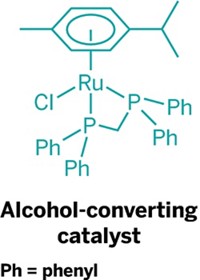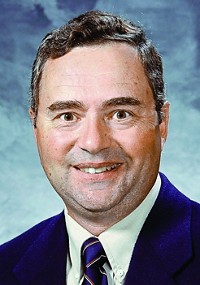Advertisement
Grab your lab coat. Let's get started
Welcome!
Welcome!
Create an account below to get 6 C&EN articles per month, receive newsletters and more - all free.
It seems this is your first time logging in online. Please enter the following information to continue.
As an ACS member you automatically get access to this site. All we need is few more details to create your reading experience.
Not you? Sign in with a different account.
Not you? Sign in with a different account.
ERROR 1
ERROR 1
ERROR 2
ERROR 2
ERROR 2
ERROR 2
ERROR 2
Password and Confirm password must match.
If you have an ACS member number, please enter it here so we can link this account to your membership. (optional)
ERROR 2
ACS values your privacy. By submitting your information, you are gaining access to C&EN and subscribing to our weekly newsletter. We use the information you provide to make your reading experience better, and we will never sell your data to third party members.
Environment
ACS Award For Affordable Green Chemistry
Sponsored by Dow Chemical
by Jean-François Tremblay
January 4, 2010
| A version of this story appeared in
Volume 88, Issue 1
With all the talk about wind and solar becoming economically viable sources of clean power, it's easy to overlook that crude oil will continue to play the predominant role in energizing our planet for many more decades. Vincent J. D'Amico, Emanuel (Emiel) H. van Broekhoven, and Juha J. Jakkula have invented an environmentally friendly process for producing gasoline alkylate, a key component in formulating gasoline with high octane and low emissions.
Up to now, the production of alkylate has required the use of billions of gallons of liquid catalysts based on either hydrofluoric or sulfuric acid. There are numerous downsides to these methods. HF is extremely toxic and can form aerosol clouds when it leaks. H2SO4-based catalysts, meanwhile, are highly corrosive, and once used, they must be transported for regeneration. Research scientists in the refining field have long searched for a better way to make alkylates.
The new process developed by the awardees makes use of a novel solid acid zeolite catalyst that does not generate waste products or heavy polymer by-products. The technology has been proven at a 10-barrel-per-day demonstration plant owned by Neste Oil in Porvoo, Finland.
The cost of implementing the technology is about equivalent to that of building a facility that uses hydrofluoric acid catalysts and is 10 to 15% lower than the cost of one that uses sulfuric acid catalysts. The process was developed under the umbrella of AlkyClean, a joint venture of Albemarle, Lummus Technology, and Neste Oil, the three firms in which the trio are or were senior scientists. Jakkula recently retired.
D'Amico, 56, is now manager of refining technology at Lummus. The holder of a masters degree in chemical engineering from Princeton University that he earned in 1976, he joined Lummus in 1980 after working for four years as a staff engineer at Union Carbide's Linde division. During nearly three decades at Lummus, D'Amico has focused mostly on "clean fuels" themes. He joined the AlkyClean team in 1999 where he served as team project manager. He currently supports the commercialization of the process.
Van Broekhoven, 53, is head of application research for alternative fuel technologies at Albemarle Catalysts. He obtained a Ph.D. in heterogeneous catalysis from Leiden University in 1985. That year, he joined the AkzoNobel petroleum-refining catalysts business that was acquired by Albemarle in 2004 (C&EN, April 26, 2004, page 7). At Akzo, he developed catalysts for fluid catalytic cracking, naphtha reforming, isomerization, and other chemical processes and obtained patents for DeSOx additives. He started conducting research on the AlkyClean process in 1994 and, together with his team, developed the catalyst and process concept that were used to build the first pilot plant in 1995.
Jakkula, 66, earned a masters degree in chemical engineering from Helsinki University of Technology in 1969. He joined Neste in 1970 and has been there his whole career, starting out as a process design engineer. He retired in 2008 as Neste Engineering's head of process engineering. He became a member of the AlkyClean team in 1999 and there led a group of scientists who worked out how the technology could be demonstrated on a semi-commercial scale at the Neste Porvoo refinery.
Industry response to AlkyClean has been positive, the awardees tell C&EN. Potential customers recognize it as the leading green technology in the alkylation field. A number of refiners have expressed interest, and the awardees expect that AlkyClean will be installed on a large scale in the near future.
The award address will be presented before the Division of Petroleum Chemistry.







Join the conversation
Contact the reporter
Submit a Letter to the Editor for publication
Engage with us on Twitter